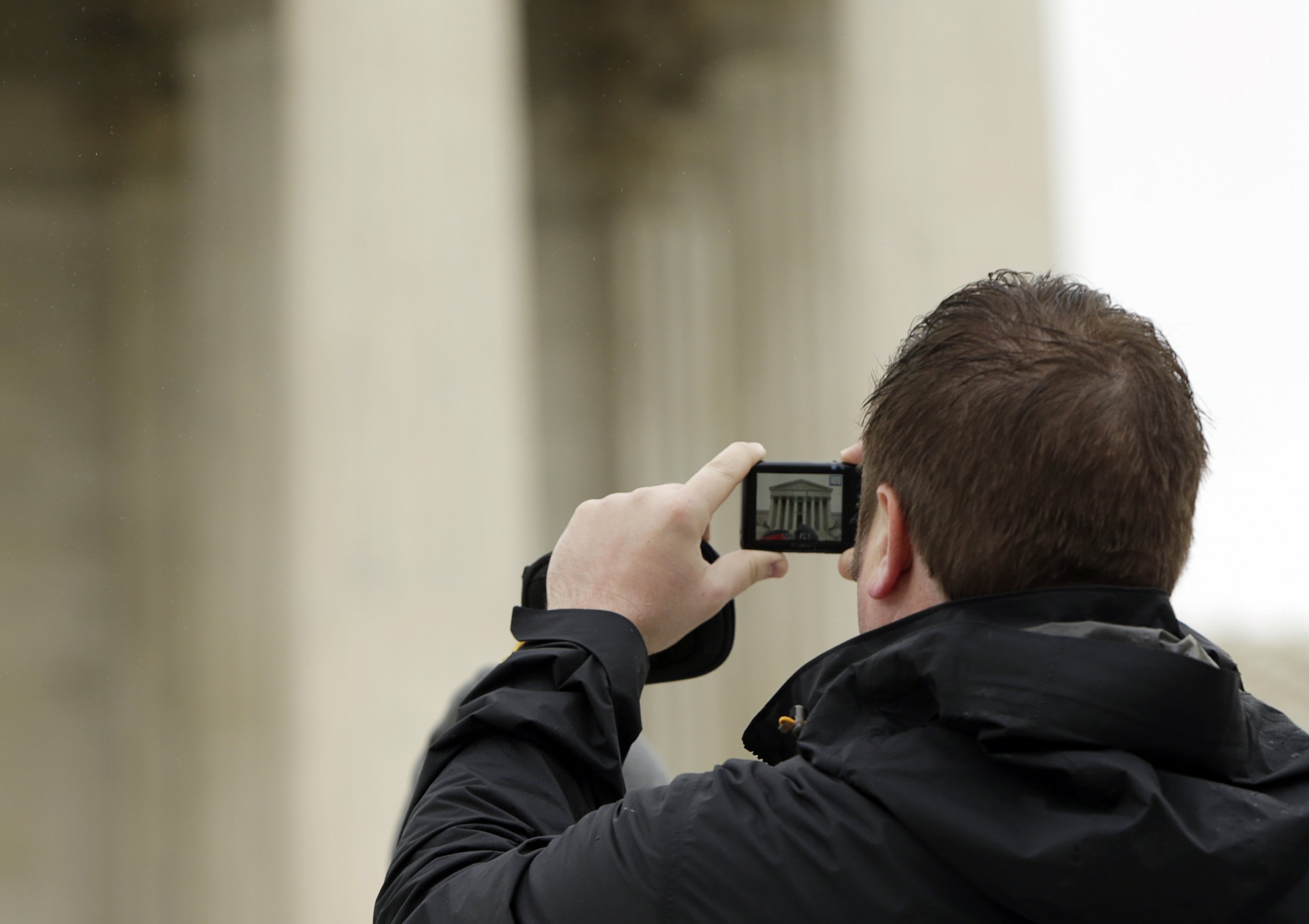
The U.S. Supreme Court's latest case, a debate over smartphone privacy rights, began as a routine traffic stop.
In 2009, a college student named David Riley was pulled over for driving with expired tags. The encounter began to escalate when the officer discovered that Riley had a suspended license. He searched the car, found two weapons, and arrested Riley. Back at the station, the officer went through Riley's smartphone without a warrant and obtained evidence he was involved in an attempted murder. Riley was eventually sentenced to 15 years in prison.
Since his conviction, Riley and digital rights advocates have argued that the police's warrantless search of his smartphone was a violation of his Fourth Amendment protection against illegal search and seizure. On Tuesday, his case was heard in the U.S. Supreme Court.
As Riley's attorney, Jeffrey Fisher, wrote in his petition, according to a 1969 Supreme Court ruling, police are allowed to search a person's pockets and personal belongings only in order to "seize weapons and to prevent the destruction of evidence...in the area in which an arrestee might reach." The courts, the attorney added, are struggling to apply this "set of legal rules largely developed decades ago, before the digital era."
The state's position is that a smartphone is no different than, say, a wallet or a notebook, and is, thus, fair game for police officers. But according to Electronic Frontier Foundation attorney Hanni Fakhoury, the broad scope of information contained on a phone makes searching them fundamentally more invasive.
A smartphone, such as the Samsung model Riley was carrying, contains contacts, text messages, emails, photos and videos—in many cases the entire contents of a person's digital life. And, if a person uses an email client, their mail is "sitting on their actual phone," Fakhoury notes. That mail can contain not only personal correspondence, but information about bank accounts and online purchases.
"Those were not things that were seizable," says Toby Weir-Jones the CEO of Blackphone, a privacy-minded smartphone company. If you got arrested, he says, "you couldn't be forced to provide a full transaction history of your bank account." But now, either through emails, cached web pages, or online banking apps, all that information is vulnerable.
"What this case is about," Fakhoury says, "is whether the nature of the digital world matters in deciding our constitutional rights." According to a 2012 poll by Time, 32 percent of Americans prefer texting to phone calls. As communication continues to move into the recorded world of texts and emails, advocates like Fakhoury worry that police will have an unprecedented ability to surveil citizens private conversations.
Fisher echoed this sentiment in court on Tuesday, pointing out that in California, when police take a phone, "they're keeping this information in databases, ever-growing databases of every cell phone that they've ever seized."
Another worry is that judges, with an average age of almost 68, will fail to recognize how much personal information is stored on smartphones. "The easiest way to decide the case right now in 2014," Fisher said, "is simply say, digital evidence kept on modern cell phones are different than physical items." Associate Justice Samuel Alito's reply? "What if the person had on his person a compact disk?"
And he's one of the younger ones.
The court will make its ruling on the case before its session ends in June.
Uncommon Knowledge
Newsweek is committed to challenging conventional wisdom and finding connections in the search for common ground.
Newsweek is committed to challenging conventional wisdom and finding connections in the search for common ground.





